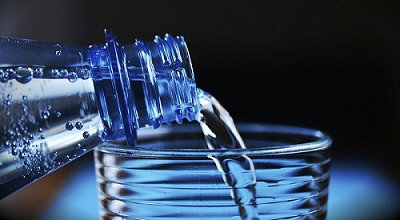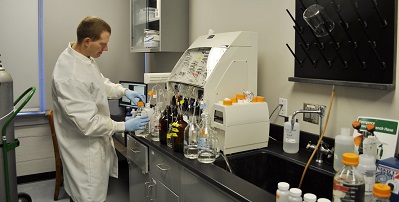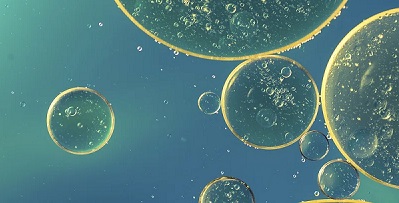
Table of Contents
Drinking Water
Drinking water or Potable water is a water which meets water quality standards. It should not contain undesirable Substances, Toxic Substances, Radioactive Substances, Bacteria, Pathogens, Lead, harmful microbes and other harmful Substances.

On the earth surface, approximately 70% surface is covered by water, but from which only 2.8% water is potable or drinking, the rest of 97.2% water is saline. Everyone has the right to sufficient, acceptable, continuous, physically accessible, safe and affordable water for personal and domestic use.
Indian Standard For Drinking Water
Indian Standard For Drinking Water was adopted by the Bureau of Indian Standards (BIS). This standard prescribes the requirements and the methods of sampling and test for drinking water. Drinking water shall comply with the requirements given in Indian Standard For Drinking Water.
According to Indian Standard, Drinking water is a water which is intended for human consumption for drinking as well as for cooking purposes from any source. It includes water (treated or untreated) supplied by any means for human consumption.

Indian standard specifies the acceptable limit and the permissible limit in the absence of alternate source as shown below.
1. Organoleptic and Physical Parameters
| Characteristic | Acceptable Limit (mg/l) | Permissible Limit in Absence of Alternate Source (mg/l) |
|---|---|---|
| Colour, Hazen units | 5 | 15 |
| Odour | Agreeable | Agreeable |
| pH value | 6.5-8.5 | No relaxation |
| Taste | Agreeable | Agreeable |
| Turbidity, NTU | 1 | 5 |
| Total dissolved solids | 500 | 2000 |
2. General Parameters Concerning Substances Undesirable in Excessive Amounts
| Characteristic | Acceptable Limit (mg/l) | Permissible Limit in Absence of Alternate Source (mg/l) |
|---|---|---|
| Aluminium (as Al) | 0.03 | 0.2 |
| Ammonia (as total ammonia- N) | 0.5 | No relaxation |
| Anionic detergents (as MBAS) | 0.2 | 1.0 |
| Barium (as Ba) | 0.7 | No relaxation |
| Boron (as B) | 0.5 | 1.0 |
| Calcium (as Ca) | 75 | 200 |
| Chloramines (as Cl2) | 4.0 | No relaxation |
| Chloride (as Cl) | 250 | 1000 |
| Copper (as Cu) | 0.05 | 1.5 |
| Fluoride (as F) | 1.0 | 1.5 |
| Free residual chlorine | 0.2 | 1 |
| Iron (as Fe) | 0.3 | No relaxation |
| Magnesium (as Mg) | 30 | 100 |
| Manganese (as Mn) | 0.1 | 0.3 |
| Mineral oil | 0.5 | No relaxation |
| Nitrate (as NO3) | 45 | No relaxation |
| Phenolic compounds (as C6H5OH) | 0.001 | 0.002 |
| Selenium (as Se) | 0.01 | No relaxation |
| Silver (as Ag) | 0.1 | No relaxation |
| Sulphate (as SO4) | 200 | 400 |
| Sulphide (as H2S) | 0.05 | No relaxation |
| Total alkalinity as calcium carbonate | 200 | 600 |
| Total hardness (as CaCO3) | 200 | 600 |
| Zinc (as Zn) | 5 | 15 |
3. Parameters Concerning Toxic Substances
| Characteristic | Acceptable Limit (mg/l) | Permissible Limit in Absence of Alternate Source (mg/l) |
|---|---|---|
| Cadmium (as Cd) | 0.003 | No relaxation |
| Cyanide (as CN) | 0.05 | No relaxation |
| Lead (as Pb) | 0.01 | No relaxation |
| Mercury (as Hg) | 0.001 | No relaxation |
| Molybdenum (as Mo) | 0.07 | No relaxation |
| Nickel (as Ni) | 0.02 | No relaxation |
| Polychlorinated biphenyls | 0.0005 | No relaxation |
| Polynuclear aromatic hydro- carbons (as PAH) | 0.0001 | No relaxation |
| Total arsenic (as As) | 0.01 | 0.05 |
| Total chromium (as Cr) | 0.05 | No relaxation |
Trihalomethanes
| Characteristic | Acceptable Limit (mg/l) | Permissible Limit in Absence of Alternate Source (mg/l) |
|---|---|---|
| Bromoform | 0.1 | No relaxation |
| Dibromo- chloro- methane | 0.1 | No relaxation |
| Bromo- dichloro- methane | 0.06 | No relaxation |
| Chloroform | 0.2 | No relaxation |
4. Parameters Concerning Radioactive Substances
| Characteristic | Acceptable Limit (Bq/l) | Permissible Limit in Absence of Alternate Source (Bq/l) |
|---|---|---|
| Alpha emitters | 0.1 | No relaxation |
| Beta emitters | 1.0 | No relaxation |
5. Pesticide Residues Limits
| Pesticide | Limit (µg/l) |
|---|---|
| Alachlor | 20 |
| Atrazine | 2 |
| Aldrin/ Dieldrin | 0.03 |
| Alpha HCH | 0.01 |
| Beta HCH | 0.04 |
| Butachlor | 125 |
| Chlorpyriphos | 30 |
| Delta HCH | 0.04 |
| 2, 4- Dichloro phenoxy acetic acid | 30 |
| DDT (o, p and p, p – Isomers of DDT, DDE and DDD) | 1 |
| Endosulfan (alpha, beta, and sulphate) | 0.4 |
| Ethion | 3 |
| Gamma — HCH (Lindane) | 2 |
| Isoproturon | 9 |
| Malathion | 190 |
| Methyl parathion | 0.3 |
| Monocrotophos | 1 |
| Phorate | 2 |
6. Bacteriological Quality of Drinking Water

| Organisms | Requirements |
|---|---|
| All water intended for drinking: a) E. coli or thermotolerant coliform bacteria | Shall not be detectable in any 100 ml sample |
| Treated water entering the distribution system: a) E. coli or thermotolerant coliform bacteria b) Total coliform bacteria | Shall not be detectable in any 100 ml sample |
| Treated water in the distribution system: a) E. coli or thermotolerant coliform bacteria b) Total coliform bacteria | Shall not be detectable in any 100 ml sample |
FAQs :
What is Drinking Water ?
Drinking water or Potable water is a water which meets water quality standards. It should not contain undesirable Substances, harmful microbes, Radioactive Substances, Toxic Substances, Bacteria, Lead, Pathogens and other harmful Substances.
What is Indian Standard For Drinking Water ?
Indian Standard For Drinking Water was adopted by the Bureau of Indian Standards (BIS). This standard was originally published in 1983. This standard prescribes the requirements and the methods of sampling and test for drinking water. This standard specifies the acceptable limit and the permissible limit in the absence of alternate source.
Minimum TDS level in drinking water ?
The Bureau of Indian Standards (BIS) recommended 500 mg/l as the acceptable limit of TDS (Total Dissolved Solids) for drinking water. However, in absence of alternate source The BIS recommended 2000 mg/l as the permissible limit of TDS for drinking water.
Is code for drinking water standards ?
Indian Standard code For Drinking Water is IS 10500 : 2012
Also Visit :
➤ Download Our App For More Articles
➤ Civil Engineering MCQs Practice
➤ Soil Mechanics MCQs Practice
➤ Building Materials MCQs Practice
➤ Civil Engineering Study Materials
➤ Civil Engineering Previous Year Papers
